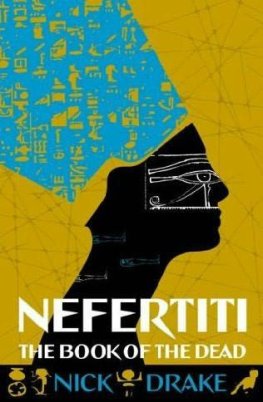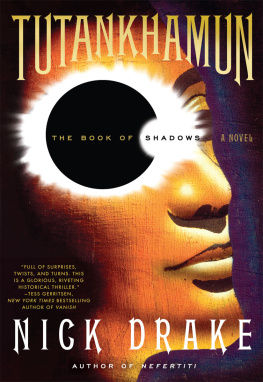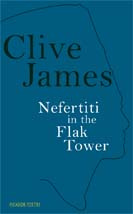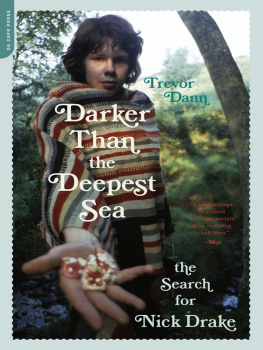Nick Drake - Nefertiti
Here you can read online Nick Drake - Nefertiti full text of the book (entire story) in english for free. Download pdf and epub, get meaning, cover and reviews about this ebook. genre: Detective and thriller. Description of the work, (preface) as well as reviews are available. Best literature library LitArk.com created for fans of good reading and offers a wide selection of genres:
Romance novel
Science fiction
Adventure
Detective
Science
History
Home and family
Prose
Art
Politics
Computer
Non-fiction
Religion
Business
Children
Humor
Choose a favorite category and find really read worthwhile books. Enjoy immersion in the world of imagination, feel the emotions of the characters or learn something new for yourself, make an fascinating discovery.

- Book:Nefertiti
- Author:
- Genre:
- Rating:4 / 5
- Favourites:Add to favourites
- Your mark:
- 80
- 1
- 2
- 3
- 4
- 5
Nefertiti: summary, description and annotation
We offer to read an annotation, description, summary or preface (depends on what the author of the book "Nefertiti" wrote himself). If you haven't found the necessary information about the book — write in the comments, we will try to find it.
Nefertiti — read online for free the complete book (whole text) full work
Below is the text of the book, divided by pages. System saving the place of the last page read, allows you to conveniently read the book "Nefertiti" online for free, without having to search again every time where you left off. Put a bookmark, and you can go to the page where you finished reading at any time.
Font size:
Interval:
Bookmark:
Nick Drake
Nefertiti
1
Year 12 of the Reign of King Akhenaten, Glory of the Sun Disc.
Thebes, Egypt
I had dreamed of snow. I was lost in a dark place, and snow was falling slowly and silently, each flake a puzzle I could never solve before it disappeared. I awoke with the feeling of its fleeting, cryptic lightness on my face. It made me feel surprisingly sad, as if I had lost something, or someone, for ever.
I lay still for a moment, listening to Tanefert breathing quietly at my side, the heat of the day already rising. I have never seen snow, of course, but I remember reading the report of a box of it carried from the furthest north, like treasure, packed in straw. And one hears the stories brought back from beyond the horizon. A freezing world. Deserts of snow. Rivers of ice. White and weightless, it may be held in the hand if one can endure the pain of its cold fire. Yet it is nothing but water. Water, which cannot be held in the hand. Only its incarnation has been changed, and I believe it changes back again depending on the world in which it finds itself. I also heard that when they finally opened the box, it was empty. This mysterious snow had vanished. Someone no doubt died for the disappointment. Such is treasure.
Maybe this is also death. That is not what we hear from the Priests. We all learned the prayer: when the tomb is opened may the body be perfect for the perfect life after life. But have they seen the heat of the sun god rot and putrefy the charming flesh of the living, the young and the beautiful, with their nonsensical hopes and pointless dreams, into the contorted shapes of horror and monstrosity and petrified agony? Have they seen lovely faces cut apart, holes ripped open through muscle, heads smashed to bony fragments, the strange puckering of burned flesh where the fat has boiled? I doubt it.
Such thoughts are the torment of my work. I, Rahotep, youngest chief detective of the Thebes Medjay division, see my children playing or struggling to concentrate on their musical instruments. And I know their skin, which we caress and kiss, and care for with almond and moringa oils, and perfume with persea and myrrh, and dress with linens and gold, is merely a bag containing organs and bones and jars of blood; the hopes of being alive and in love depend on this butchers business. I keep this to myself, even when I make love to my wife and for an instant her elegant body as it turns to me by the light of the oil lamp blurs from perfection into death. Apparently this is a rather famous thought. I should be grateful, perhaps, to have such thoughts. I should be more poetic, more philosophical, more often, if only to amuse during my private hours. Well, I have no private hours. And then again, as I stand over yet another corpse, a life-a little history of love and time-ended in a moment of frenzy or hatred or madness or panic, I feel it is the only time I know where in the world I am.
Of course, as Tanefert says whenever she finds the opportunity-which these days is too often-it is typical of me to think the worst of any given situation. But in these impossible times of the reign of Akhenaten I am confronted daily with justifications for this attitude. Things grow worse. I see it in my work: in the ever-increasing numbers of tormented and mutilated bodies of murder victims, and in the robbed and desecrated tombs of the rich and powerful, with the Nubian security guards grinning from ear to ear through their slit throats. I see it in the ostentation of the rich and the endless misery of the poor. I see it in the greater world in the shaking news of the Great Changes: the Kings banishment of the Karnak Temple Priesthood from their ancient places and rights; the denial and sometimes the desecration of Amun and all the lesser, older, popular gods; the imposition of the strange new god we are now supposed to celebrate and worship. I see it in the eccentric conception and extravagant expense of the mysterious new temple city of Akhetaten, under construction these last years in the desert, midway between here and Memphis and therefore so deliberately far from everyone. And I see all this imposed upon a perilous economy at a time of turbulence and uncertainty in our Empire. So, indeed, how else should I think? She says it is not normal, and she is right. But I passed through that portal long ago, when I understood that shadows and darkness live inside each one of us, and how little it takes before they leach through the soul and the smile. Death is easy.
So when I returned home at noon with the news of my sudden calling to investigate a great mystery at the heart of the regime stuck alarmingly in my mind, Tanefert took one look at me and said, What has happened? Tell me. She sat down on the bench in the front room, where we never sit. I reached out to her, but she knows this ploy. I dont need you to hold my hand. Ive been through this before.
So I told her. About Ahmose coming into my office that morning. He was relishing a pastry, as always, not noticing the crumbs that fell clumsily into the ample folds of his robe. His belly makes him slow, and a detective should be strong but trim (as I think my daily exercises have made me). About how, with his usual sullen manner, he communicated with more than usual reluctance and aggression the arrival of the command from on high ordering me immediately and without delay to Akhetaten, to attend the court of Akhenaten in pursuit of a great mystery.
We stared at each other.
Why has this honour fallen to me? I asked.
Ahmose shrugged, and then smiled like a yawning necropolis cat. Thats your job to find out.
And what is the mystery?
You will be enlightened when you meet the head of the new Medjay there, Mahu. You know him by reputation?
I nodded. Notorious for his zealous application of the letter of the law.
Ahmose noisily swallowed the last of his pastry, and leaned towards me. But I have contacts in the new capital. And I hear it is a question of a missing person. And he grinned ominously again.
Tanefert held herself still, her expression tight with fear. She knows as I know that if I fail to solve this mystery, whatever it may be-and Ra knows it cannot be other than a great mystery involving great figures and great powers-there will be no mystery about my fate. I will be stripped of my position, my few honours, my belongings, and set to death. And yet I did not feel afraid. I felt something else I could not acknowledge at that moment.
Say something. I looked at her.
What do you want me to say? Nothing will make you stay with us. You actually look excited.
Which was true, though I still would not admit it.
Thats because I am trying not to look worried in front of the girls.
She did not believe me.
How long will you be away?
I couldnt tell her the truth, which was that I had no idea. About fifteen days. Perhaps much less. It depends on how quickly I can solve the mystery. On the state of the evidence, the existence of the clues, the circumstances
But she had turned her head away and was staring without seeing out of the window. Suddenly, the way the afternoon light struck her face pushed my heart into my mouth, and silenced me.
We sat like that for a little while, not speaking.
Then she said, I dont understand. Surely the city Medjay there should investigate the mystery? Its an internal issue. Why do they want you? Youre a stranger, you have no contacts, no-one you can trustand if its supposed to be so secret why are they commanding an outsider? The local police will resent you for trespassing on their territory.
Everything she said was true, as usual; her nose for the simple truth is smart and infallible. I smiled.
Theres nothing to smile about, she said.
I love you.
I dont want you to go.
Font size:
Interval:
Bookmark:
Similar books «Nefertiti»
Look at similar books to Nefertiti. We have selected literature similar in name and meaning in the hope of providing readers with more options to find new, interesting, not yet read works.
Discussion, reviews of the book Nefertiti and just readers' own opinions. Leave your comments, write what you think about the work, its meaning or the main characters. Specify what exactly you liked and what you didn't like, and why you think so.







